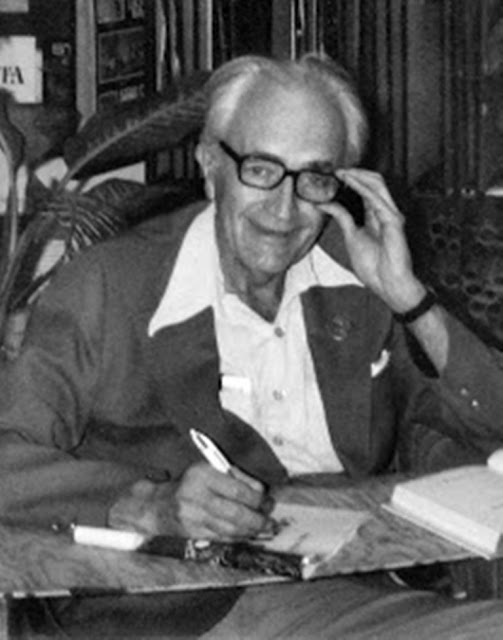
“Issiot! Fffool! Lushshsh!” hissed the cat and bit Spar somewhere.
The fourfold sting of the eye teeth balanced the gut-wretchedness of his looming hangover, so that Spar’s mind floated as free as his body in the blackness of Windrush, in which shone only a couple of running lights dim as churning dream-glow and infinitely distant as the Bridge or the Stern.
The vision came of a ship with all sails set creaming through blue, wind-ruffled sea against a blue sky. The last two nouns were not obscene now. He could hear the whistle of the salty wind through shrouds and stays, its drumming against the taut sails, and the creak of the three masts and all the rest of the ship’s wood.
What was wood? From somewhere came the answer: plastic alive-o.
And what force flattened the water and kept it from breaking up into great globules and the ship from spinning away, keel over masts, in the wind?
Instead of being blurred and rounded like reality, the vision was sharp-edged and bright—the sort Spar never told, for fear of being accused of second sight and so of witchcraft.
Windrush was a ship too, was often called the Ship. But it was a strange sort of ship, in which the sailors lived forever in the shrouds inside cabins of all shapes made of translucent sails welded together. And it was a ship that was not sailing anywhere, because it had everywhere in it—it was all there was.
The only other things the two ships shared were the wind and the unending creaking. As the vision faded, Spar began to hear the winds of Windrush softly moaning through the long passageways, while he felt the creaking in the vibrant shroud to which he was clipped wrist and ankle to keep him from floating around in the Bat Rack.
Sleepday’s dreams had begun good, with Spar having Crown’s three girls at once. But Sleepday night he had been half-waked by the distant grinding of Hold Three’s big chewer. Then werewolves and vampires had attacked him, solid shadows diving in from all six corners, while witches and their familiars tittered in the black shadowy background. Somehow he had been protected by the cat, familiar of a slim witch whose bared teeth had been an ivory blur in the larger silver blur of her wild hair. Spar pressed his rubbery gums together. The cat had been the last of the supernatural creatures to fade. Then had come the beautiful vision of the ship.












